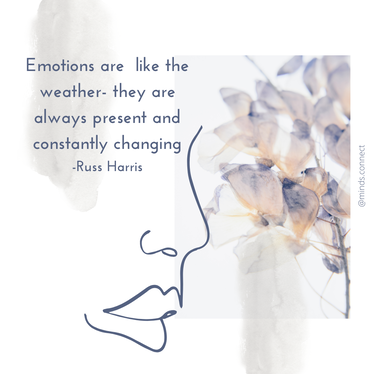|
🌸Evolution has shown that anxiety is an adaptive response and is beneficial for survival.
💫We know that emotions are cognitive and somatic reactions, with a short duration, to specific environmental stimuli. 👍There is an infinite number of human experiences that cause normal anxiety. As research has shown, the main difference between adaptive or normal anxiety and pathological anxiety is between the source and the intensity of the experience. 🧘♀️We could apply this to all range of emotions. We can feel sad because is appropriate in a specific situation, but if we feel sad chronically without a clear "reason" this may become a problem to keep up with our daily activities. 💕We can say that emotions play a crucial role in our daily lives enabling us to cope with everyday situations. 🆘However, if the emotion we are feeling gets "stuck" and prevents us from functioning it may have become a problem and therapy could be sought to help. Normal anxiety
Pathological anxiety
🌸COPING WITH ANXIETY🌸 - Identify the trigger Spend some time writing or thinking about what is the trigger that makes you feel anxious. - Move your body Do some gentle stretching, go for a walk, use the yoga ball and bounce, release it by shaking, do a self-massage, etc. - Take long deep breaths Deep breathing helps to activate the parasympathetic nervous system that is responsible for resting and digestion (calming effect) - Practice mindfulness Look around and focus your 5 senses on the present moment. - Be compassionate Talk to yourself as if you were talking to your best friend. Use kind, validating & encouraging words. - Take action- Do something you enjoy Don't stay in the "why" you feel anxious. Instead, think about "what" do you need to do to feel better. Do something that is aligned with your values & brings you joy.
0 Comments
Leave a Reply. |
AuthorHi there! Archives
January 2022
Categories |

 RSS Feed
RSS Feed
